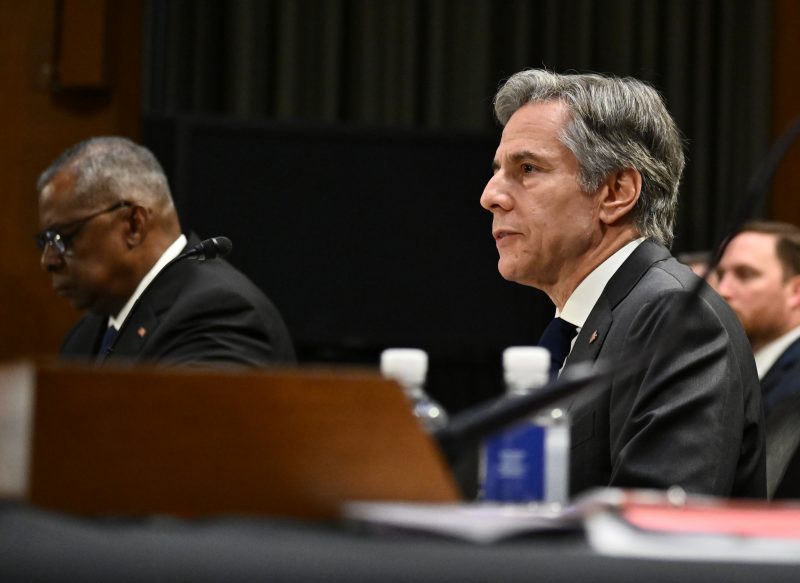
Secretary of State Antony Blinken will allow members of the House Foreign Affairs Committee to view a classified diplomatic cable after a months-long standoff between GOP lawmakers and the State Department over the Biden administration’s withdrawal from Afghanistan.
In March, Rep. Michael McCaul (R-Tex.) sent the State Department a subpoena for the cable, which employees at the U.S. Embassy in Kabul had transmitted to Washington in July 2021 through a “dissent channel” that allows employees to convey information to senior agency leaders that differs from those of other department officials.
The dissent channel cable was sent before the collapse of the U.S.-backed government in Kabul, setting in motion a tumultuous evacuation period that included a takeover by Taliban militants and an attack killing 13 U.S. service members.
Blinken initially resisted providing Congress the cable, saying it could discourage workers from using the channel in the future. He noted that the department had sent lawmakers thousands of pages of documents related to the withdrawal, which was widely seen as a chaotic and embarrassing end to the United States’ two decades in Afghanistan.
The State Department proposed instead speaking with lawmakers about the document’s contents, and then last month allowed only McCaul and Rep. Gregory W. Meeks (N.Y.), the ranking Democrat on the committee, to read the cable. Meeks had also requested the cable last year.
McCaul, in turn, threatened to hold Blinken in contempt if he continued to withhold the dissent channel cable from all members of the committee.
Those lawmakers will now be given “a reasonable opportunity to view the dissent channel cable and the response,” McCaul said in a statement Monday, noting it was the first time in history the State Department has allowed Congress to view a dissent channel cable.
“This is an unprecedented step forward in our committee’s investigation into the Afghanistan withdrawal,” McCaul said. “This cable contains first-hand information from Embassy Kabul employees who were on the ground prior to the collapse as well as Secretary Blinken’s response to their concerns. I want to thank Secretary Blinken for negotiating with me in good faith on this.”
McCaul also stepped back from his threats to hold Blinken in contempt, saying the agreement would be “a satisfactory accommodation” to the March subpoena.
It was not clear what steps McCaul, who last year released a report on the administration’s management of the withdrawal, would have taken to enforce the subpoena.
Legal experts told The Washington Post in March that Congress has limited power to force an executive branch agency to hand over a document in such situations. Lawmakers could pursue criminal contempt charges or take other legal actions to try to compel the department, but that would be a slow process with an uncertain outcome. Alternatively, they might attempt to force the department’s hand by withholding funds or blocking approval of agency nominees.


Comments are closed.